NYC’s Forgotten ‘War on Christmas Trees’
Discover how an obscure holiday crackdown affects festive street vendors today!


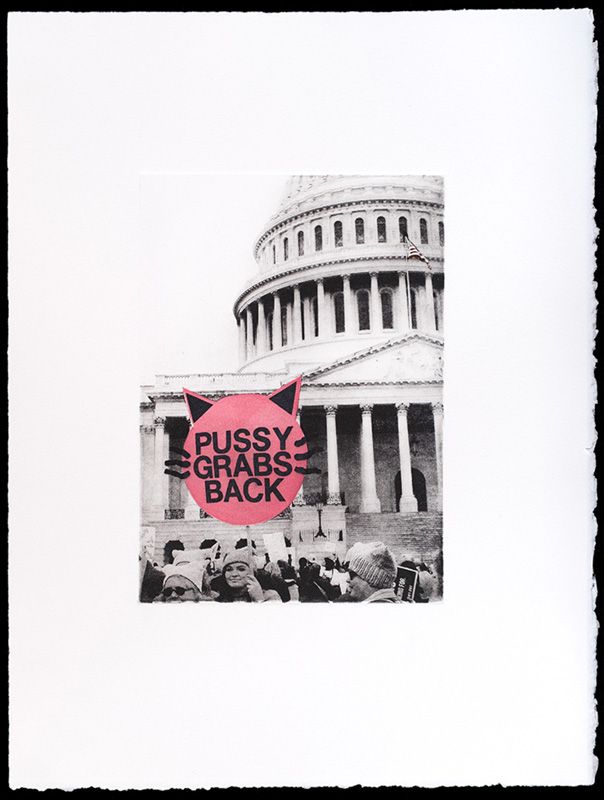
Women’s March, 2017. Image via IFPDA
Now that autumn is in full gear, a slew of exciting events are taking place throughout New York City: one to include on your radar is the 2017 Fine Art Print Fair, hosted by The International Fine Print Dealers Association (IFPDA). As the largest art fair dedicated to printmaking, the event serves as the central pillar for New York Print Week, which takes place on October 23rd – 29th.
“The fair tells the entire story of printmaking, from its origins as the pinnacle artistic technology for the early masters, to its embrace by the pop artists as a democratizing tool in the art world, and a new generation of artists who push our understanding of what a print can be,” says IFPDA Executive Director, Michele Senecal.
Now in its 26th year, the annual Fine Art Print Fair — which arguably presents the largest art-historical span of works in a single fair — will feature 81 exhibitors, each selected from IFPDA’s international membership. Discover treasures ranging from rare masterpieces to modern works by today’s contemporary artists. It all takes place on October 26th – 29th at the River Pavilion, Javits Center (35th and Eleventh Avenue).
In preparation for the event, we curated a list of highlights to check out:
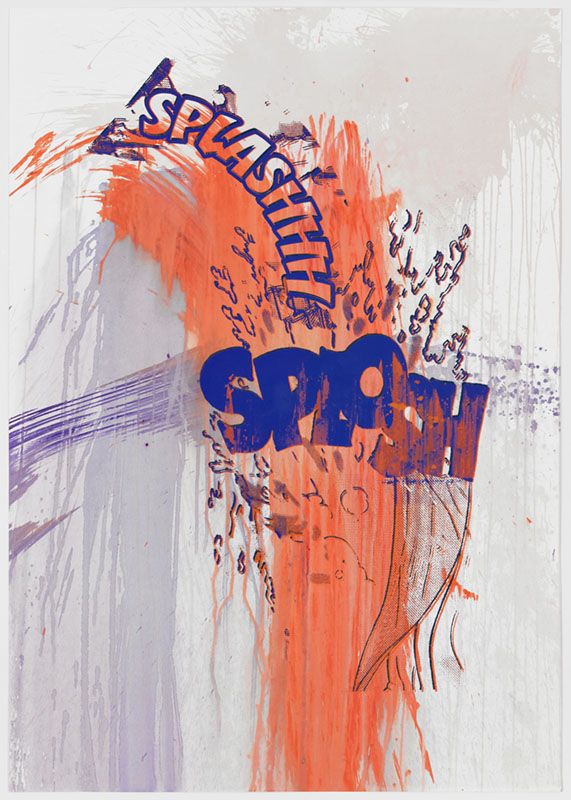
Splashhh Splosh (No. 8). Image via IFPDA by Will Lytch
American-Swiss artist, Christian Marclay, is known for his sculptures, sound collages and videos, including his critically acclaimed film, The Clock (2010), a 24-hour long movie that presents film scenes where a clock or watch displays a certain time.
Much like his other work, which The Guardian describes as “a sort of inebriated action painting,” Actions: Splashhh Splosh (No. 8) is a contemporary, multicolored piece that features dynamic explosions of acrylic paint with stenciled comic book exclamations.

Interdisciplinary artist, Soledad Salamé, was born in Chile, but currently resides in Baltimore, Maryland where she founded Sol Print Studios, a printmaking facility that offers intensive workshops dedicated to solar plate etching and non-toxic printmaking.
The above image is an example of a print that utilizes solar plate etching techniques combined with a hand-coloring process. It’s part of a series of powerful images that depict protesters and signs during the 2017 Women’s March.
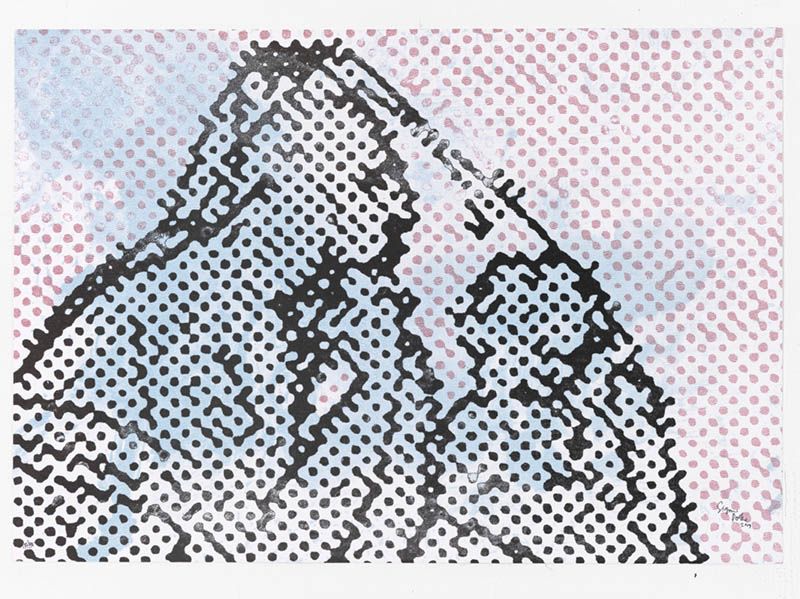
Image via IFPDA. Courtesy of Mike Karstens
Prior to his death in 2010, artist Sigmar Polke was a prolific printmaker, crafting over 150 editions. His last edition, Dannecker’s House Gecko, was created in 2009. It is comprised of four, large sized images printed on embossed lizard skin using silkscreen and offset lithography.
Entitled The Woman with Child (Die Frau mit Kind), The Two Women (Die Zwei Frauen), The Dance (Der Tanz) and The Women (Die Frau), the works are oriented on the motifs of artist Johann Heinrich Dannecker.
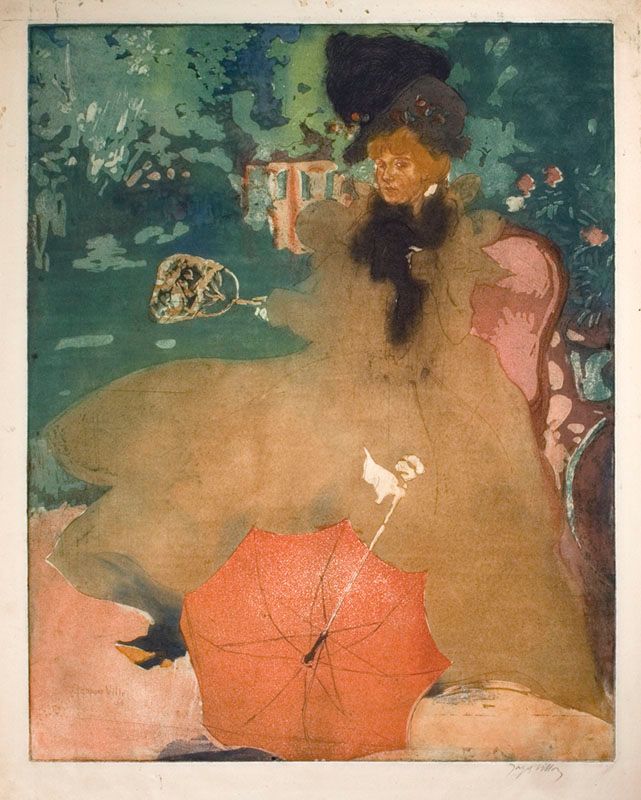
Image via IFPDA. Courtesy of R.S. Johnson Fine Art
The eldest brother of Marcel Duchamp, Gaston Emile Duchamp (also known as Jacques Villon) was a caricaturist, illustrator and painter. To differentiate himself from his siblings, Gaston used a pseudonym that served as a nod to French medieval poet, François Villon.
While he was initially noted for his humorous political cartoons, Villon eventually adopted a “Belle Époque” style of printmaking that was influenced by Henri de Toulouse-Lautrec. He later played with flat, Cubist forms and abstraction before returning to painting landscapes and portraits.
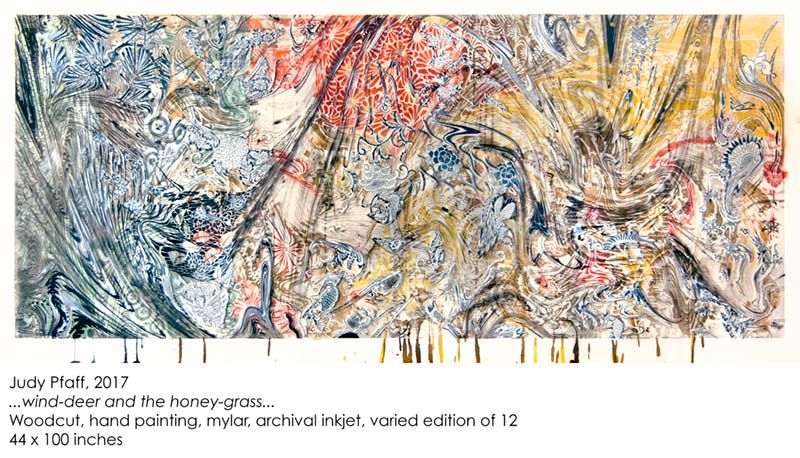
Image via IFPDA. Courtesy of Tandem Press
London-born artist, Judy Pfaff, is regarded mainly for her elaborate, on-site installation art, which has been referred to as “a collage in space.” Pfaff herself describes her work as “abstract narratives based on personal experience.”
In addition to her large scale installations, Pfaff also creates paintings, sculptures and prints. Her various prints — like …wind-deer and the honey-grass… — have a three-dimensional quality, and were crafted using highly detailed plates made of circles and lines, finished with hand-applied fabric paint and archival inkjet.
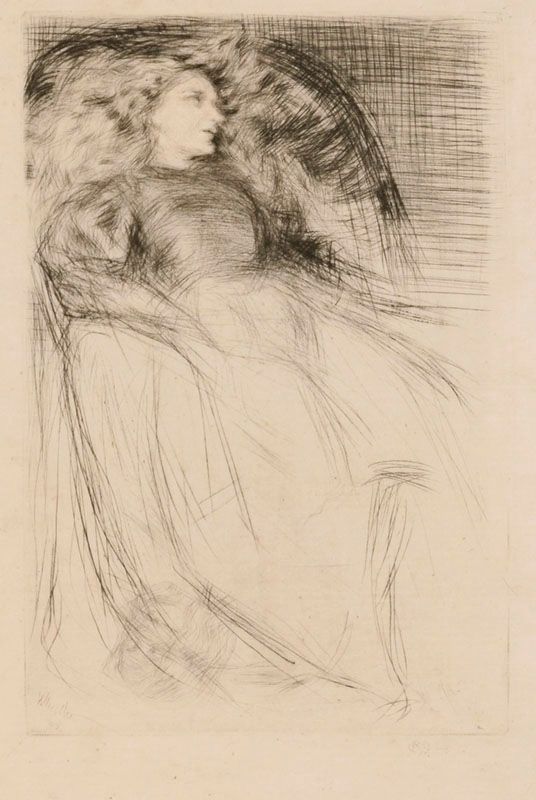
Image via IFPDA. Courtesy of Catherine E. Burns Fine Prints & Drawings
One of the most influential late 19th century American painters and etchers, James Abbott McNeill Whistler, often employed a variety of styles, including Impressionism and Art Nouveau.
Drawn on thin japan paper, Weary is a depiction of Whistler’s companion in the 1860s, Jo Hiffernan. According to The Met, it is likely due to the influence of Rembrandt that Whistler felt comfortable leaving the second half of the drawing almost bare with the exception of a few fine lines.
The International Fine Print Dealers Association (IFPDA) Fine Art Print Fair takes place on October 26th-29th at the River Pavilion, Javits Center located at 11th Avenue at 35th Street. For more information, click here.
Next, read about 17 Art Installations and Exhibits in NYC Not to Miss in October.
Subscribe to our newsletter